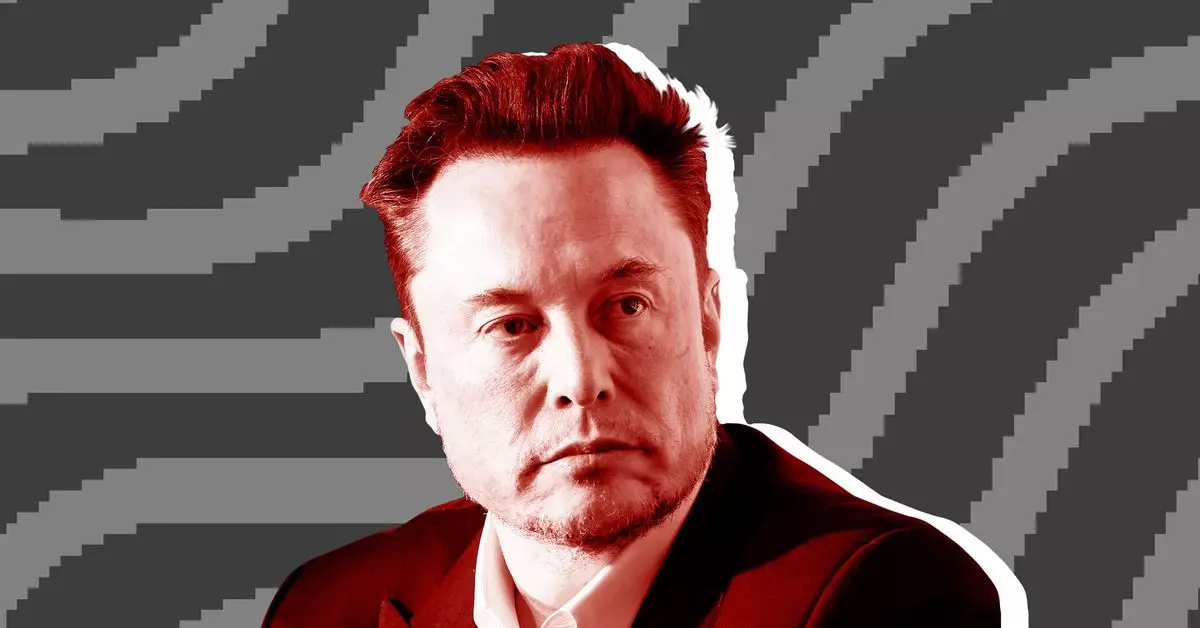The recent appointment of notable figures Elon Musk and Vivek Ramaswamy to spearhead the Department of Government Efficiency, or DOGE, has sparked considerable debate and speculation. President-elect Donald Trump’s assertion that this initiative will “dismantle Government Bureaucracy” underlines a bold vision for reforming the federal landscape. Yet, the feasibility of such sweeping changes raises questions about the practicality and implications of their mission.
DOGE aims to tackle what many perceive as an overly complex and inefficient governmental structure. The department’s mission statement includes slashing unnecessary regulations, reducing wasteful spending, and restructuring federal agencies. These are monumental tasks, and the rhetoric surrounding them suggests a radical overhaul. However, the feasibility of such aggressive objectives depends heavily on the strategies that Musk and Ramaswamy will utilize. Critics may argue that dismantling bureaucratic systems can lead to unintended consequences, including the erosion of vital public services and safety nets.
The Economic Implications of Radical Cuts
One of the more alarming aspects of this initiative is Musk’s mentioned plan to cut spending by at least $2 trillion. This figure has drawn skepticism from various sectors, particularly given that it may necessitate drastic measures affecting critical programs such as defense and Social Security. A reduction of this magnitude raises ethical issues surrounding resource allocation and the impact on vulnerable populations. Musk’s openness about potential short-term repercussions implies a willingness to accept societal fallout for the sake of long-term gains, but can ambitious cuts genuinely lead to sustainable improvement?
The Ideological Undertones
Underneath the surface of the DOGE initiative lies a significant ideological agenda. The announcement reflects a common Republican narrative that the government is inherently wasteful and needs to be “liberated” from inefficiency. This perspective appeals to a demographic that views governmental reform as a pathway to individual empowerment and economic growth. However, it presupposes that the government’s role is fundamentally flawed. Analysis of this initiative needs to consider whether substantial efficiency gains can actually lead to improved services rather than cutting essential support systems that many Americans rely on.
Elon Musk is best known for his role in engineering revolutionary technologies, yet his foray into governmental reform diverges significantly from his corporate ventures. Meanwhile, Vivek Ramaswamy’s experience as an entrepreneur hints at a push towards a more business-oriented approach to governance. Whether these two can successfully translate their backgrounds into effective policy changes remains uncertain. Musk’s entrepreneurial flair and Ramaswamy’s business acumen may not necessarily align with the intricacies of federal governance, raising concerns about whether the duo can realistically achieve their ambitious objectives.
The Political Landscape and Public Sentiment
The appointment of Musk and Ramaswamy signifies more than a mere bureaucratic shift; it encapsulates the current political climate in the United States. With Musk’s visible support for Trump during the election campaign, he has emerged as a polarizing figure that symbolizes a blend of business influence and political power. Public sentiment on this pairing is mixed, with enthusiasm in certain circles and skepticism in others. The effectiveness of DOGE will ultimately be gauged not just by fiscal outcomes but by how it resonates with the American populace.
Final Thoughts: Promises or Reality?
As Elon Musk and Vivek Ramaswamy prepare to lead the Department of Government Efficiency, the stakes could not be higher. Their work is envisioned to conclude by July 4, 2026, coinciding with the 250th anniversary of American independence—a symbolic deadline that poses additional pressure. While the ambitions driving DOGE may promise a streamlined and accountable government, the path to such a result is fraught with potential pitfalls. The discourse surrounding government efficiency deserves careful monitoring, as the outcomes of this initiative will undoubtedly impact millions of lives across the nation. Each move made by DOGE must be scrutinized not just for its economic logic but for its broader implications on societal well-being.


Leave a Reply